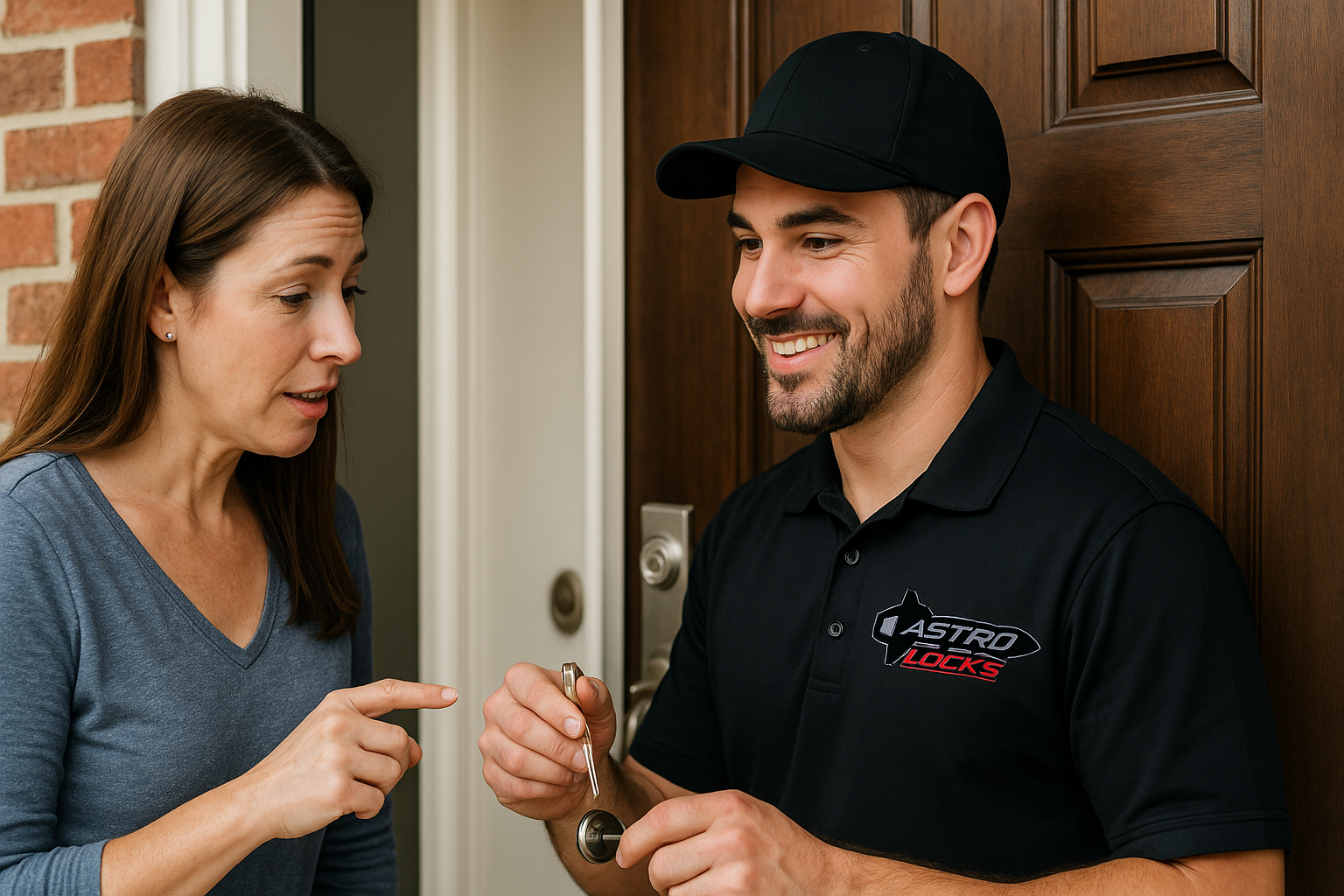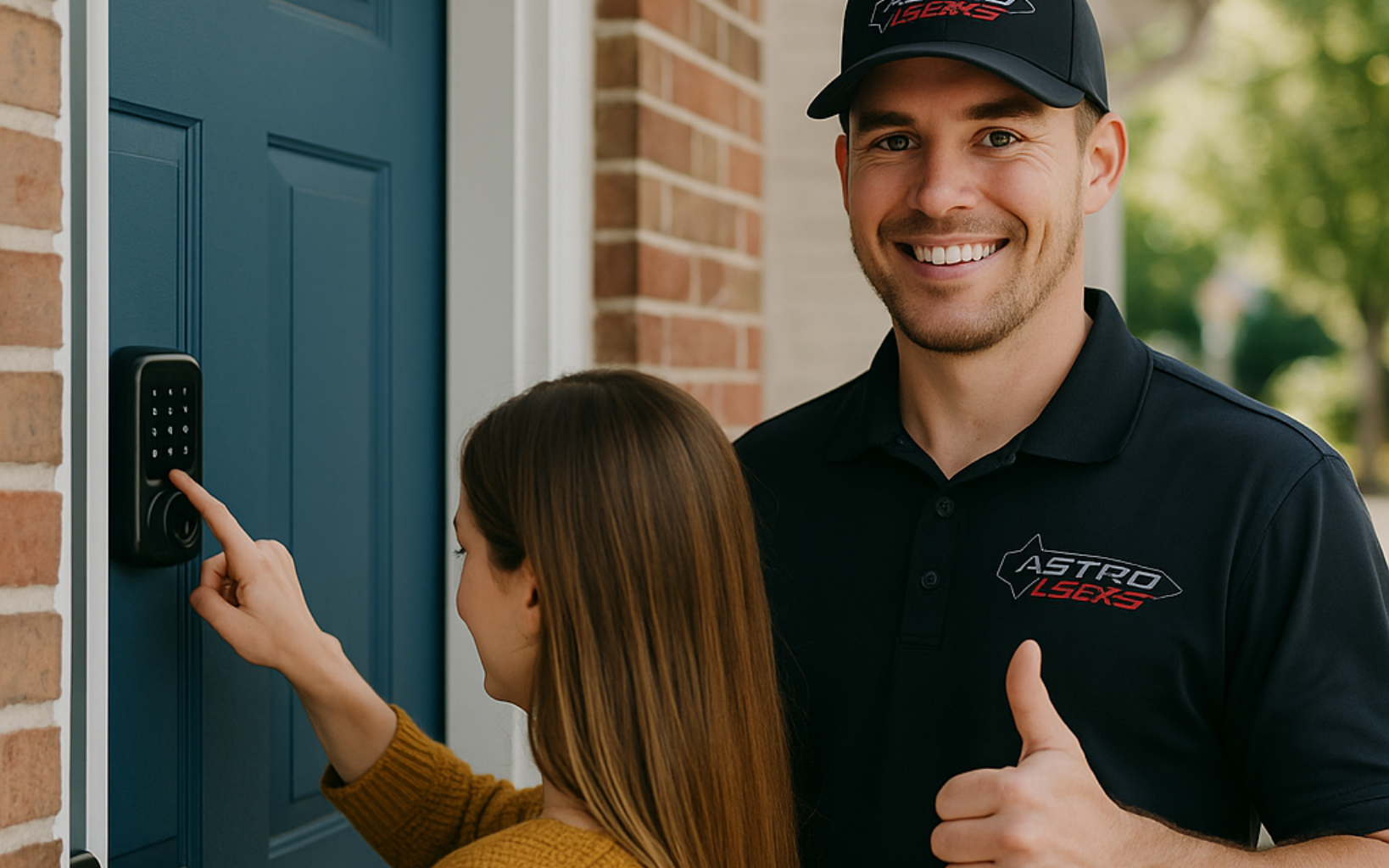What is the Most Common Commercial Lock?
September 5, 2025
The Clear Winner: Cylindrical Lever Handle Locks
When you're securing your Boston business, choosing the right commercial lock isn't just about keeping intruders out—it's about finding the perfect balance of security, convenience, and compliance with local building codes. After installing thousands of commercial locks across the Greater Boston area, we've seen which types consistently deliver the best results for businesses.
Why Cylindrical Lever Handle Locks Lead the Market
1. ADA Compliance
Lever handles meet Americans with Disabilities Act requirements, making them mandatory for most commercial buildings in Boston. Unlike round door knobs, levers can be operated with a closed fist, elbow, or by someone with limited hand mobility.
2. Durability Under Heavy Use
Boston's busy commercial buildings see hundreds of door operations daily. Cylindrical lever locks handle this constant use better than residential-grade hardware, typically lasting 15-20 years in commercial settings.
3. Cost-Effective Security
Starting around $150-300 per door, these locks offer solid security without the premium price of electronic systems. For a typical Cambridge office building, this represents significant savings compared to high-tech alternatives.
4. Fire Code Compliance
Massachusetts fire codes require that exit doors can be opened quickly during emergencies. Lever handles allow for fast, intuitive operation even in panic situations.
Retail Stores (Back Bay, Newbury Street)
Grade 1 (Highest Security)
Historic Boston Buildings (Pre-1950)
Monthly Checks:
Ready to upgrade your Boston business security? Astro Locks provides expert commercial locksmith services throughout Greater Boston, including Cambridge, Newton, Brookline, Somerville, and surrounding areas. Contact us today for a free security consultation
Astro Locks has been Boston's trusted commercial locksmith for over 15 years, helping local businesses secure their properties with reliable, code-compliant solutions.
Cylindrical Lever Handle Locks
The most common commercial lock is the cylindrical lever handle lock , and for good reason. These locks dominate approximately 70% of commercial installations in Boston, from small Cambridge startups to large Newton office complexes. Why Cylindrical Lever Handle Locks Lead the Market
1. ADA Compliance
Lever handles meet Americans with Disabilities Act requirements, making them mandatory for most commercial buildings in Boston. Unlike round door knobs, levers can be operated with a closed fist, elbow, or by someone with limited hand mobility.
2. Durability Under Heavy Use
Boston's busy commercial buildings see hundreds of door operations daily. Cylindrical lever locks handle this constant use better than residential-grade hardware, typically lasting 15-20 years in commercial settings.
3. Cost-Effective Security
Starting around $150-300 per door, these locks offer solid security without the premium price of electronic systems. For a typical Cambridge office building, this represents significant savings compared to high-tech alternatives.
4. Fire Code Compliance
Massachusetts fire codes require that exit doors can be opened quickly during emergencies. Lever handles allow for fast, intuitive operation even in panic situations.
Breaking Down Commercial Lock Types by Usage
Most Common Commercial Locks in Boston (By Percentage)
- Cylindrical Lever Handle Locks (70%)
- Standard office doors
- Retail storefronts
- Restaurant interior doors
- Medical office suites
- Mortise Locks (15%)
- High-security applications
- Historic Boston buildings
- Premium office buildings
- Banks and financial institutions
- Electronic Access Control Systems (10%)
- Tech companies in Cambridge
- Modern office buildings
- Co-working spaces
- Healthcare facilities
- Panic Hardware/Exit Devices (3%)
- Emergency exits
- High-occupancy buildings
- Retail back exits
- Educational facilities
- Other Specialty Locks (2%)
- Magnetic locks
- Electric strikes
- Smart locks
- Biometric systems
Top Commercial Lock Brands We Install in Boston
Based on our experience with Boston's climate and building types, these brands consistently perform best:
Schlage Commercial Series
- Most Popular Model : Schlage AL Series
- Best For : Standard office buildings, retail spaces
- Typical Cost : $180-250 per lock
- Why Boston Businesses Choose It
: Excellent cold weather performance, easy rekeying
Yale Commercial Hardware
- Most Popular Model : Yale 8800 Series
- Best For : High-traffic areas, schools, hospitals
- Typical Cost : $200-300 per lock
- Why It Works : Superior durability, wide finish options
Corbin Russwin
- Most Popular Model : ML2000 Series
- Best For : Government buildings, secure facilities
- Typical Cost : $250-400 per lock
- Why We Recommend It : ANSI/BHMA Grade 1 certification, excellent security
Sargent Manufacturing
- Most Popular Model : 8 Line Series
- Best For : Educational institutions, healthcare
- Typical Cost : $300-500 per lock
- Why It's Worth It : Heavy-duty construction, customizable options
Choosing the Right Commercial Lock for Your Boston Business
Consider Your Industry Requirements
Retail Stores (Back Bay, Newbury Street)
- Cylindrical lever locks for employee areas
- Electronic access control for valuable inventory
- Panic hardware for customer exits
- Cylindrical levers for individual offices
- Master key systems for building management
- Electronic access for sensitive areas
- Heavy-duty cylindrical locks for high-traffic areas
- Mortise locks for cash handling areas
- Easy-clean finishes for health code compliance
- HIPAA-compliant access control
- Lockdown capabilities for controlled substances
- ADA-compliant lever hardware throughout
Security Grades: What Boston Businesses Need to Know
ANSI/BHMA Grade Ratings Explained
Grade 1 (Highest Security)
- Required for: Banks, government buildings, high-security areas
- Cycle Rating: 2 million operations
- Typical Cost: $300-600 per lock
- Best For: Cambridge tech companies, financial institutions
- Required for: Most office buildings, retail stores
- Cycle Rating: 800,000 operations
- Typical Cost: $150-300 per lock
- Best For: Standard Boston businesses, medical offices
- Required for: Low-traffic commercial areas
- Cycle Rating: 400,000 operations
- Typical Cost: $75-150 per lock
- Best For: Storage areas, utility rooms
Installation Considerations for Boston Commercial Properties
Building Age and Type
Historic Boston Buildings (Pre-1950)
- Often require mortise locks to fit existing door preparations
- May need custom solutions for unusual door thicknesses
- Preservation restrictions may limit hardware choices
- Standardized door preparations work with most cylindrical locks
- Pre-wired for electronic access control systems
- HVAC considerations for electronic lock battery life
- Different security levels for residential vs. commercial areas
- Master key systems to separate access
- Fire code compliance for multiple occupancy types
Master Key Systems: Essential for Multi-Tenant Buildings
How Master Key Systems Work
A master key system allows different levels of access within your building:- Individual Keys : Access only specific doors (employee offices)
- Sub-Master Keys : Access groups of doors (department areas)
- Master Keys : Access multiple areas (managers, supervisors)
- Grand Master Keys : Access entire facility (building management)
Benefits for Boston Businesses
- Simplified Management : Reduce key inventory from hundreds to dozens
- Flexible Access Control : Easy to add/remove employee access
- Emergency Access : Building management can access any area quickly
- Cost Savings : Avoid expensive electronic systems while maintaining control
Electronic vs. Mechanical: Making the Right Choice
When to Choose Electronic Access Control
Best For:- Tech companies in Cambridge
- Medical facilities requiring audit trails
- Buildings with high employee turnover
- Facilities requiring time-based access
- Initial Installation: $500-1,500 per door
- Annual Maintenance: $50-100 per door
- Software Licensing: $2,000-5,000 annually
When Mechanical Locks Make More Sense
Best For:- Small businesses with stable staff
- Historic buildings with power limitations
- Budget-conscious operations
- Areas requiring fail-safe operation during power outages
- Initial Installation: $150-400 per door
- Annual Maintenance: $25-50 per door
- No ongoing software costs
Maintenance Requirements for Commercial Locks
Regular Maintenance Schedule
Monthly Checks:
- Lubricate hinges and lock mechanisms
- Test all keys and access cards
- Check for loose screws or hardware
- Verify emergency access procedures
- Deep cleaning of lock mechanisms
- Adjustment of door alignment
- Replacement of worn keys
- Security audit and recommendations
- Rekey locks for departed employees
- Update master key systems
- Replace worn hardware
- Review and update access control lists
Boston Building Code Requirements
Fire Safety Compliance
Massachusetts fire codes require:- Egress doors must unlock from inside without keys
- Panic hardware on doors serving 50+ people
- Emergency lighting for exit routes
- Clearly marked exit signs
ADA Compliance Standards
Federal ADA requirements mandate:- Lever handles on all public areas
- Maximum 5 pounds operating force
- Accessible height mounting (34"-48" from floor)
- Automatic door operators where required
Investment Considerations for Boston Businesses
Factors That Affect Lock Costs
Lock Type and Grade:- Basic cylindrical locks vs. high-security mortise systems
- ANSI/BHMA Grade 1, 2, or 3 certification levels
- Standard vs. specialized finishes and features
- New construction vs. retrofit installations
- Standard door preparations vs. custom modifications
- Single doors vs. integrated access control systems
- Lower initial investment
- Minimal ongoing maintenance requirements
- No software licensing or subscription fees
- Longer lifespan with proper maintenance
- Higher initial investment
- Ongoing maintenance and software costs
- Battery replacement schedules
- Regular system updates and support
When to Call a Professional Commercial Locksmith
DIY vs. Professional Installation
You Can Handle:- Basic key duplication
- Simple lock lubrication
- Replacing worn keys
- New lock installation
- Master key system design
- Security upgrades
- Emergency lockouts
- Compliance consultations
Red Flags That Require Immediate Professional Help
- Keys turning hard or sticking
- Doors not latching properly
- Visible wear on lock faces
- Keys breaking in locks
- Employees reporting security concerns
Future Trends in Commercial Lock Technology
What's Coming to Boston Businesses
Mobile Access Control- Smartphone-based entry systems
- No more lost key cards
- Real-time access monitoring
- Integration with building systems
- Fingerprint and facial recognition
- Highest security for sensitive areas
- Elimination of shared access codes
- Perfect audit trails
- Remote lock programming
- Real-time monitoring
- Automatic software updates
- Multi-location management
Making the Right Choice for Your Boston Business
Key Questions to Ask Yourself
- How many employees need access?
- What's your security level requirement?
- Do you need audit trails and monitoring?
- What's your budget for initial installation and ongoing costs?
- Are there specific industry compliance requirements?
- How often do employees change?
Getting Professional Guidance
Every business is unique, and what works for a Cambridge tech startup might not be right for a Newton medical practice. That's why Astro Locks offers free security consultations to help Boston area businesses make informed decisions.Why Cylindrical Lever Locks Dominate
Cylindrical lever handle locks remain the most common commercial lock because they perfectly balance security, compliance, cost, and reliability. For the majority of Boston businesses—from small Brookline shops to large Cambridge office buildings—they provide exactly what's needed without unnecessary complexity or expense. However, the "most common" doesn't always mean "best for your specific situation." Consider your unique requirements, budget, and long-term goals when making your decision.Ready to upgrade your Boston business security? Astro Locks provides expert commercial locksmith services throughout Greater Boston, including Cambridge, Newton, Brookline, Somerville, and surrounding areas. Contact us today for a free security consultation
Astro Locks has been Boston's trusted commercial locksmith for over 15 years, helping local businesses secure their properties with reliable, code-compliant solutions.
More Marketing Tips, Tricks & Tools
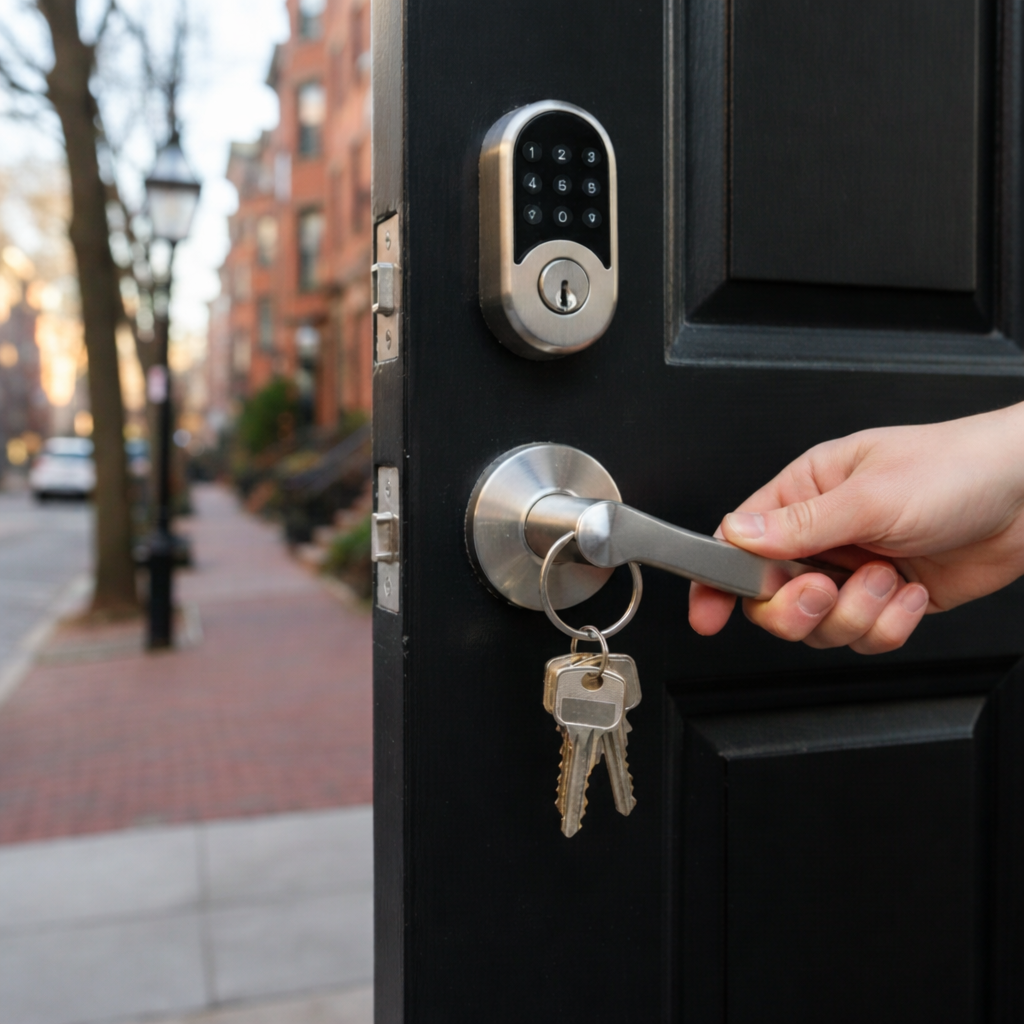
Your new Boston home should feel like a sanctuary, not a security risk. Whether you're closing on a Back Bay brownstone or settling into a triple-decker in Jamaica Plain, taking control of your home security from day one isn't just smart-it's essential. Here's the reality most new Boston homeowners don't think about: by the time you get the keys to your new place, dozens of people may have had access. Previous owners, their family members, real estate agents, contractors, cleaning crews, neighbors with "spare keys"—the list goes on. And in a city where home values average well over $700,000, leaving your security to chance just doesn't make sense. At Astro Locks , we work with new Boston homeowners every single week. We've seen it all-from folks who discovered the hard way that their "new" locks had copies floating around, to smart buyers who locked down their security before they even moved in. This guide walks you through exactly what you need to do to secure your Boston home properly, whether you're a first-time buyer in Somerville or downsizing to a condo in the Seaport.
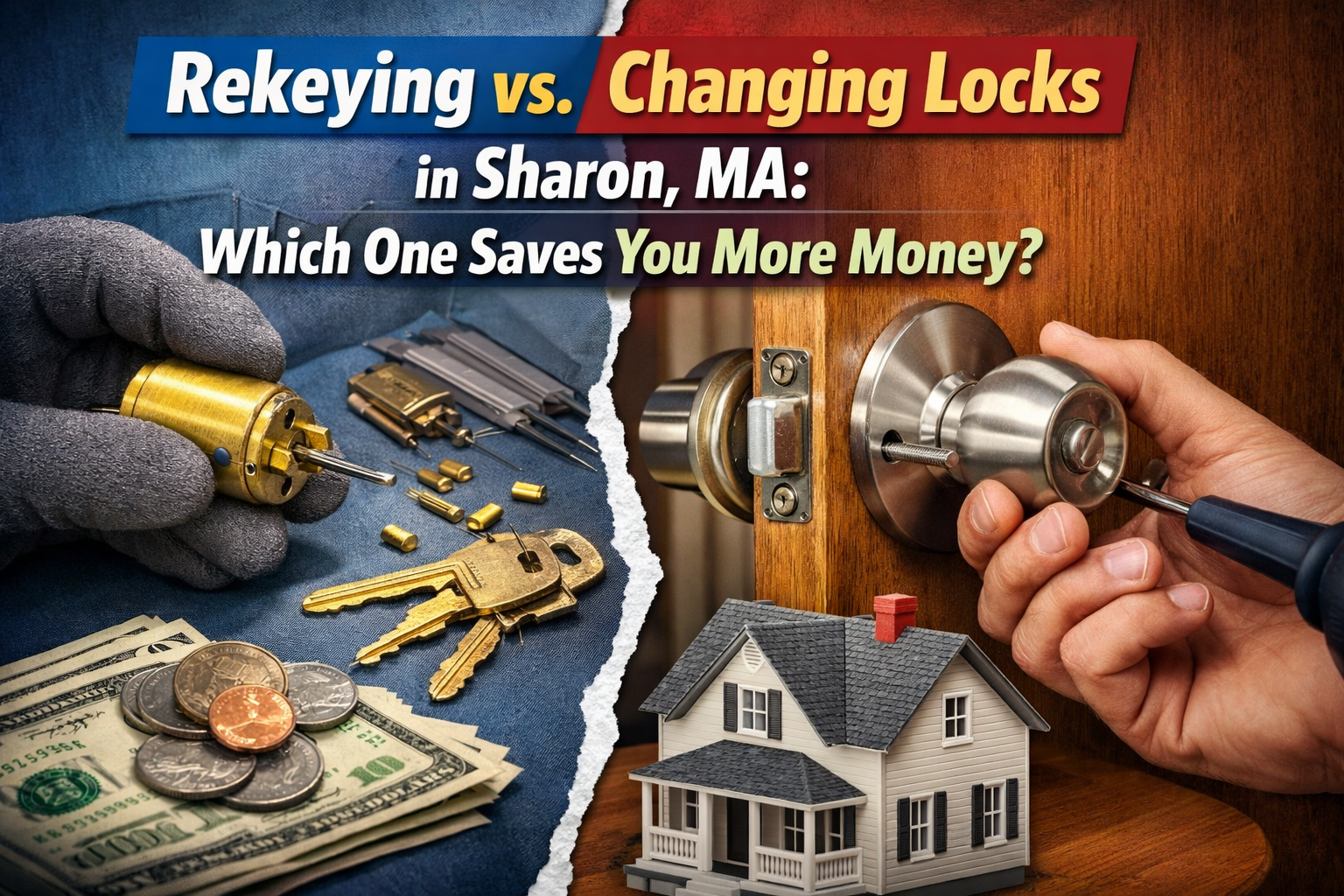
You just bought a house in Sharon. Or maybe a tenant moved out of your rental property. Perhaps you lost track of who has keys to your business on South Main Street. Whatever the situation, you're standing there looking at your locks thinking: "Do I need to replace these entirely, or can I just rekey them?" It's one of the most common questions we get at Astro Locks, and honestly, it's a smart one to ask. The difference between rekeying and changing locks can mean hundreds of dollars in your pocket—or completely wasted if you choose the wrong option for your situation. Let's break down exactly what each option involves, what it costs in the Sharon area, and most importantly, which one makes sense for your specific situation.
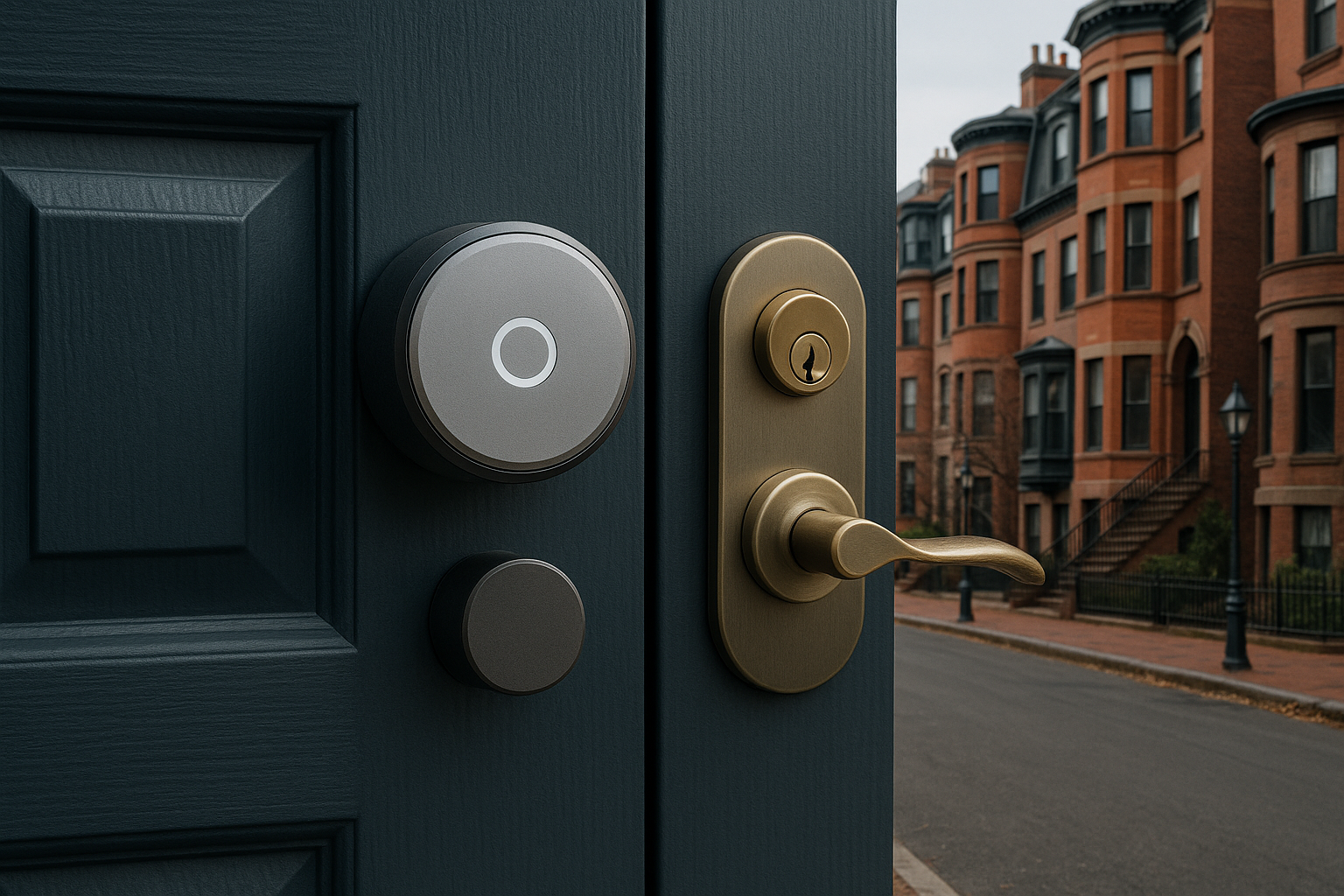
There's a moment most Boston homeowners experience at least once: standing in the rain outside your Brookline brownstone, fumbling through your bag for keys while grocery bags cut into your arms. Or maybe you're in Somerville, trying to let a contractor in while you're stuck in downtown traffic. These everyday frustrations have sparked a question we hear constantly at Astro Locks: should I switch to a smart lock, or stick with what's always worked? The short answer? It depends on your lifestyle, your home, and what keeps you up at night. After installing both types of locks across Greater Boston for over 20 years, we've learned there's no one-size-fits-all solution. Some homes genuinely benefit from smart technology, while others are better off with high-quality traditional locks. Let's walk through what you actually need to know, without the marketing hype or technical jargon.
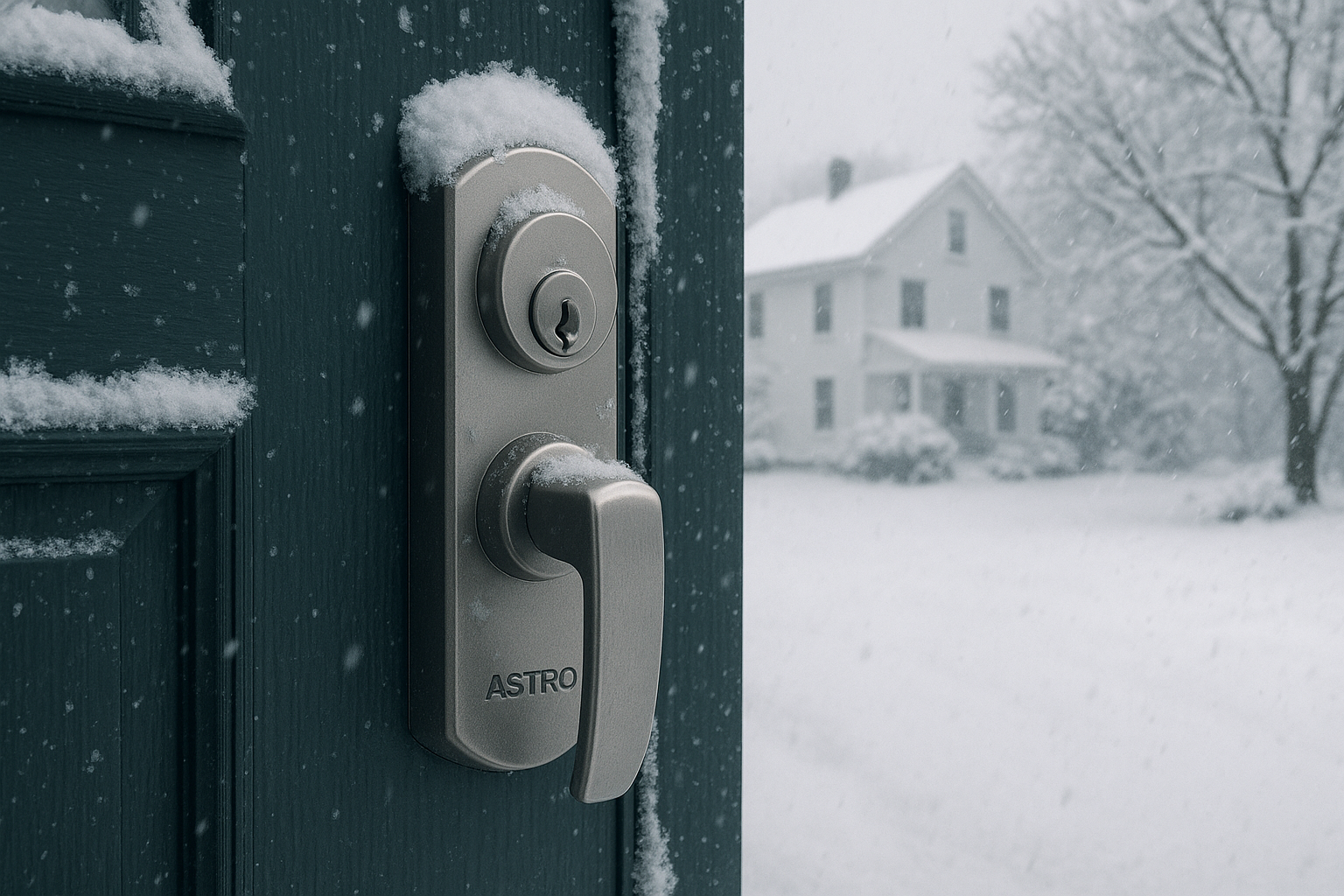
You know that moment when you're standing outside on a freezing January morning, already running late, and your key won't turn in the lock? Yeah, we've all been there. Welcome to winter in Massachusetts, where your door locks face some of the harshest conditions in the country. Here's what most Sharon homeowners don't realize: not all locks are created equal when it comes to surviving our winters. Some handle the cold like champs, while others might as well wave a white flag the moment temperatures drop below 20 degrees. If you've ever dealt with a frozen lock at 6 AM or struggled with a sticky deadbolt during a snowstorm, you already know how frustrating this can be. The good news? You don't have to put up with it. Let's talk about what actually works when Mother Nature decides to test your door hardware.

When you're standing at your front door juggling grocery bags, a coffee, and trying to fish your keys out of your pocket, you've probably thought: "There has to be a better way." Well, there is. Smart locks have gone from futuristic novelty to practical reality, and more Sharon homeowners are making the switch every year. But here's the thing – not every home needs a smart lock, and not every smart lock is right for every home. If you're trying to figure out whether it's time to upgrade from your traditional deadbolt, this guide will walk you through everything you need to know.
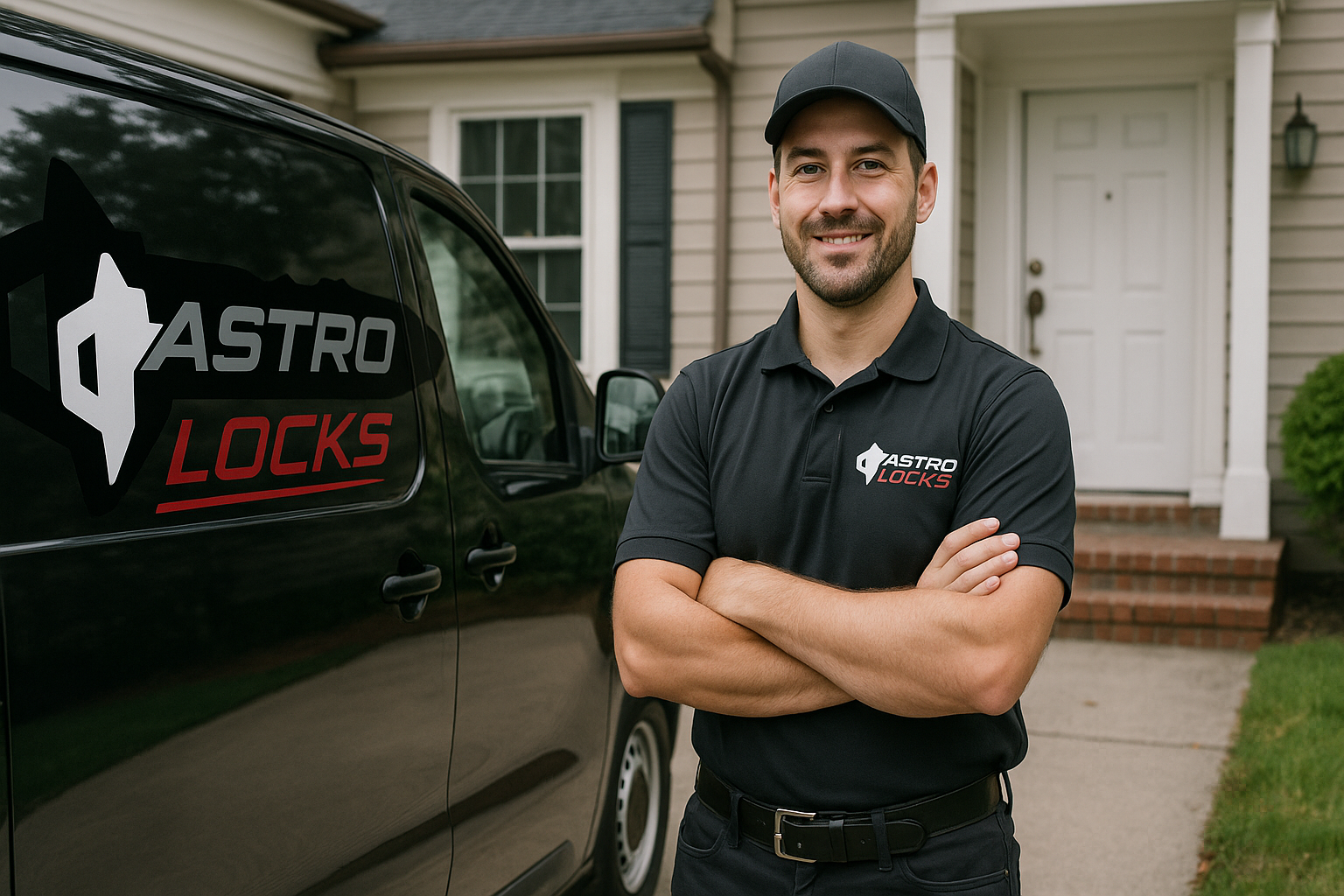
After serving hundreds of Boston homeowners across neighborhoods from Beacon Hill to Jamaica Plain, we've noticed a troubling pattern. Many residents invest in alarm systems and security cameras while overlooking fundamental vulnerabilities that burglars exploit daily. The truth is, most break-ins succeed not because of sophisticated techniques, but because homeowners unknowingly leave their properties exposed through common security mistakes. As a trusted Boston locksmith company , we've been called to homes after break-ins where a simple $50 fix could have prevented thousands in losses and irreplaceable emotional distress. This guide reveals the seven most dangerous security mistakes we encounter and provides professional solutions you can implement immediately to protect your family and property.
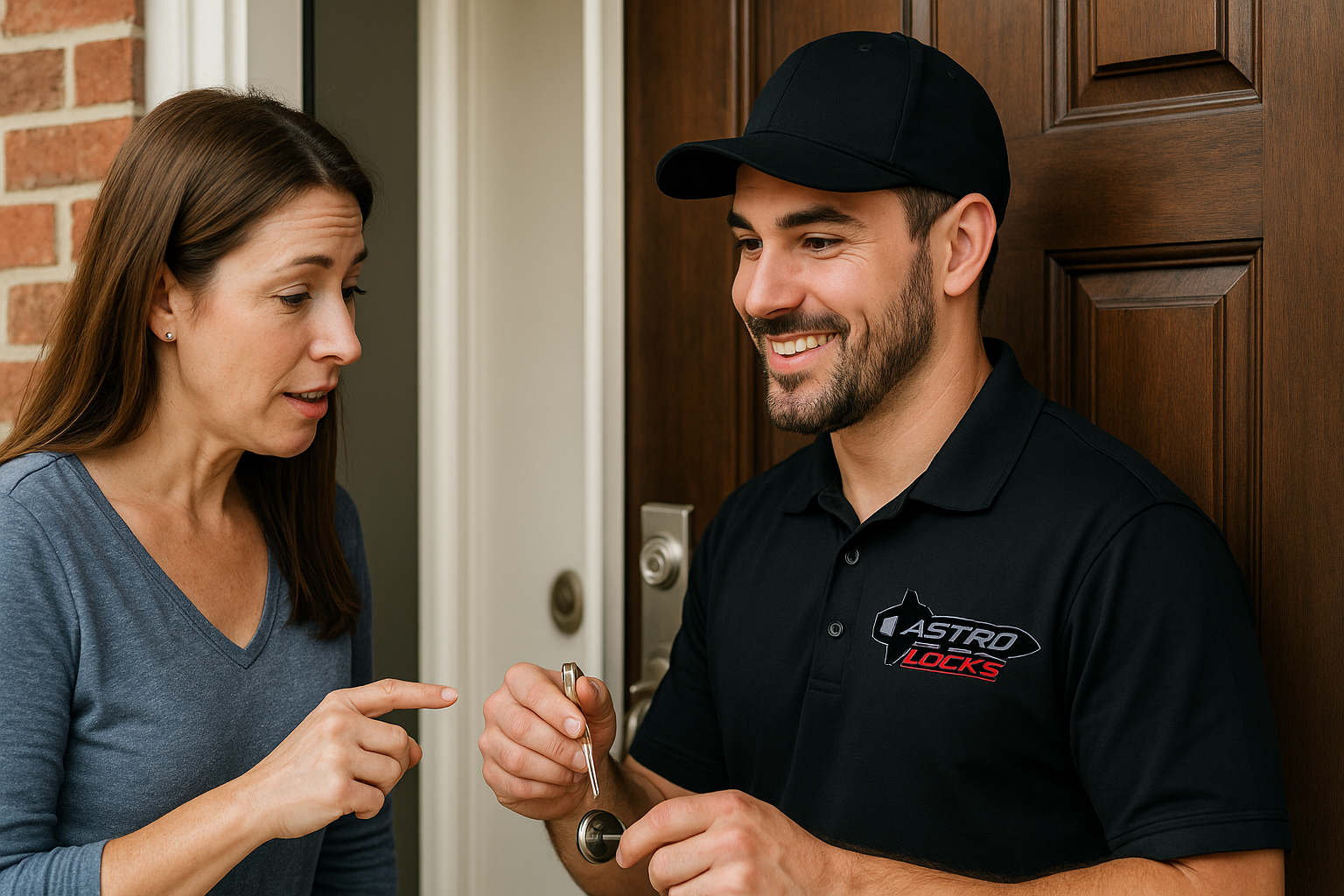
We get it. When your locks are "working well enough," upgrading your security system often falls to the bottom of your to-do list. Between mortgage payments, business expenses, and everyday life, spending money on new locks or access control systems can feel like an unnecessary luxury - especially when what you have still turns.
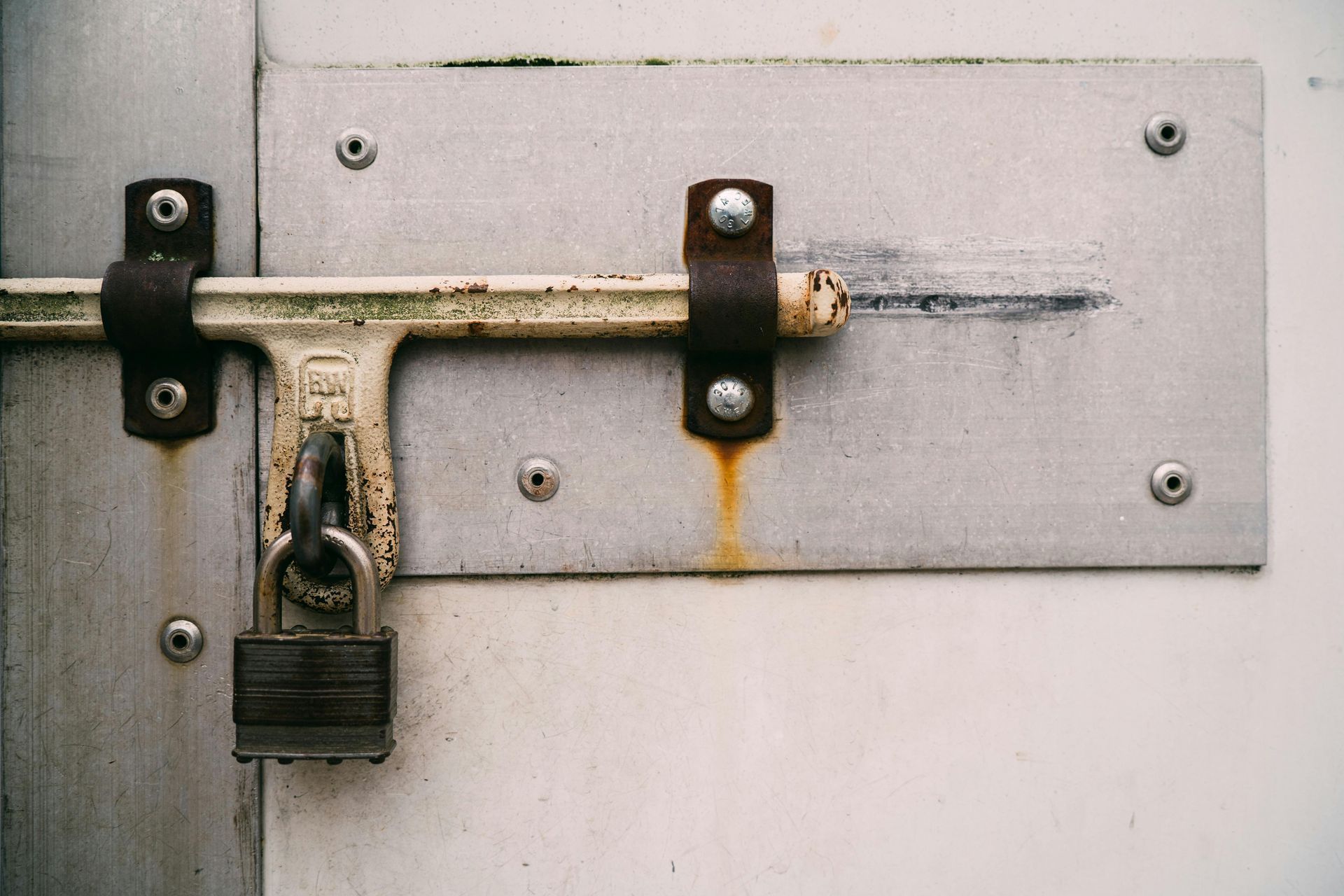
Updated: September 2025 Security threats are evolving faster than ever, and property owners across Boston are facing new challenges in protecting their homes and businesses. Whether you're a homeowner in Brookline, a property manager in Cambridge, or a business owner downtown, understanding the latest security trends and best practices isn't just smart - it's essential. This comprehensive guide breaks down everything you need to know about modern security systems, locksmith services, and the strategies that are keeping Boston properties safe in 2025. From smart lock technology to commercial access control systems, we'll cover the critical information that every property owner should understand.
